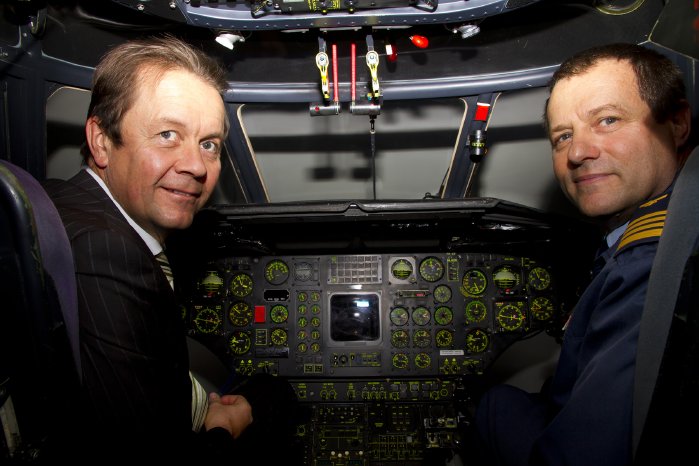"We aim to continuously improve and enhance flight safety and crew skills. By placing simulators as close as possible to our customers we are able to provide training programs tailored to their specific needs. We are confident that the simulator will add significant value, not just in terms of monetary savings for the SAAF, but in real terms, measured in terms of peoples' lives are saved," explained Eurocopter Southern Africa's CEO, Fabrice Cagnat. "And positioning the simulator in Johannesburg, where it is easy to come and train, is an attractive proposition for all other Super Puma operators. We have already received a strong interest from operators from Africa but also from other part of the world," he added.
By using a full-motion flight simulator, crew are able to refine their skills by training for all conceivable emergencies and mission scenarios, including some which would be too dangerous or not permissible to attempt during training flights on actual helicopters.
"For the SAAF, our focus is foremost on providing upliftment of aircrew skills," added Colonel Hardus Engelbrecht. "This is achieved by a combination of factors which allow trainees to forget that they are in a simulator and not the real aircraft. These are primarily a combination of accurate movements driven by hydraulically driven jacks that push, pull and tilt a replica helicopter cockpit, against which foreground imagery is projected".
"We will also benefit financially through the substantial savings that will be generated by not having to send crews to Europe for extended periods of simulator training and all of the associated costs which go with this, e.g. hotel accommodation, long haul air tickets and allowances. At the end of the day, training on a locally-based simulator will deliver a much bigger bang for our limited buck," he added.

